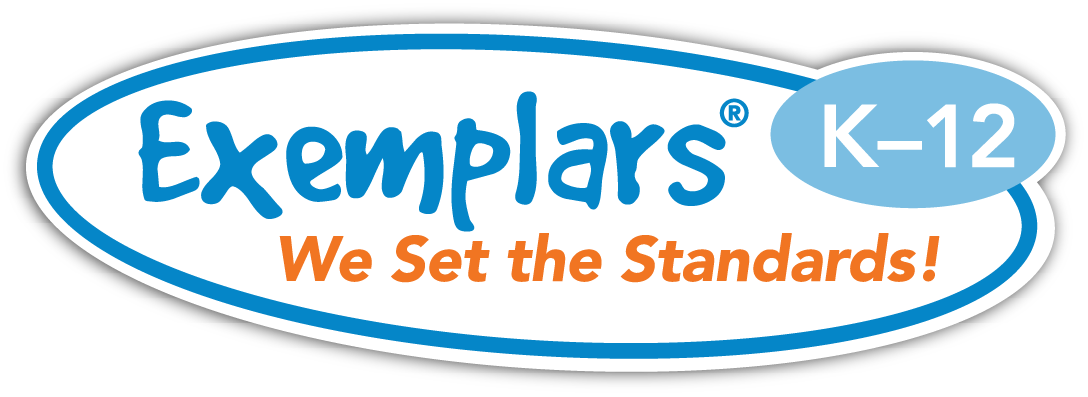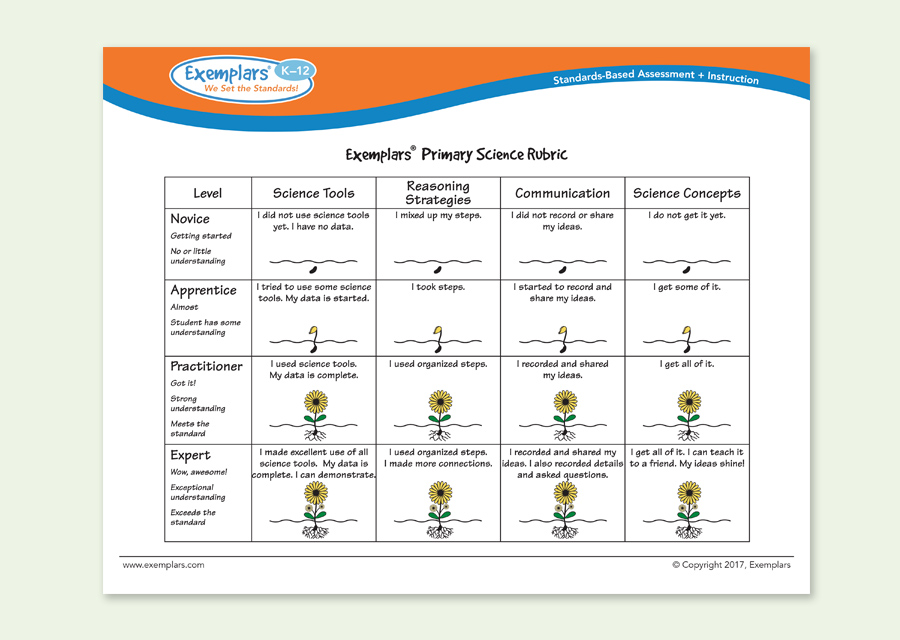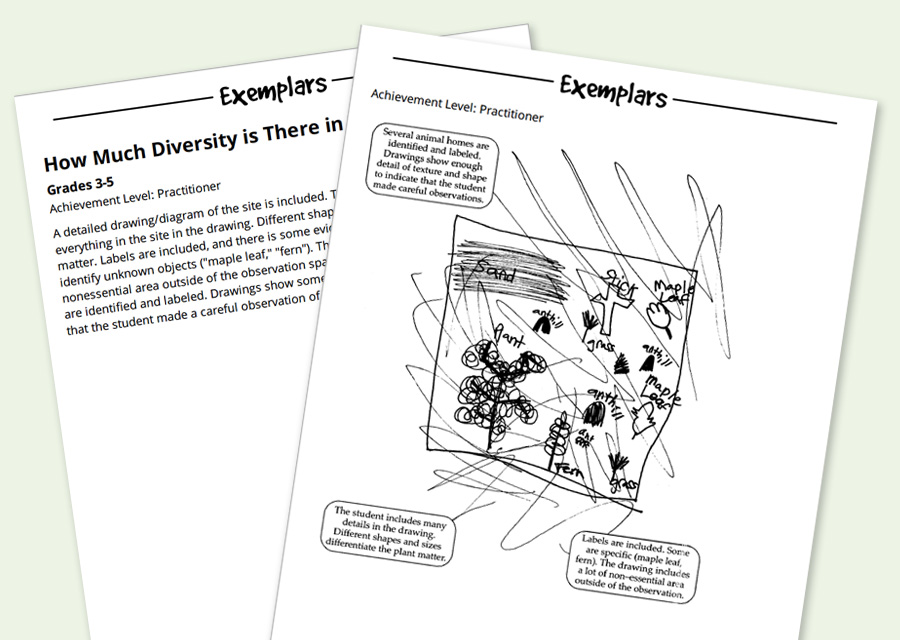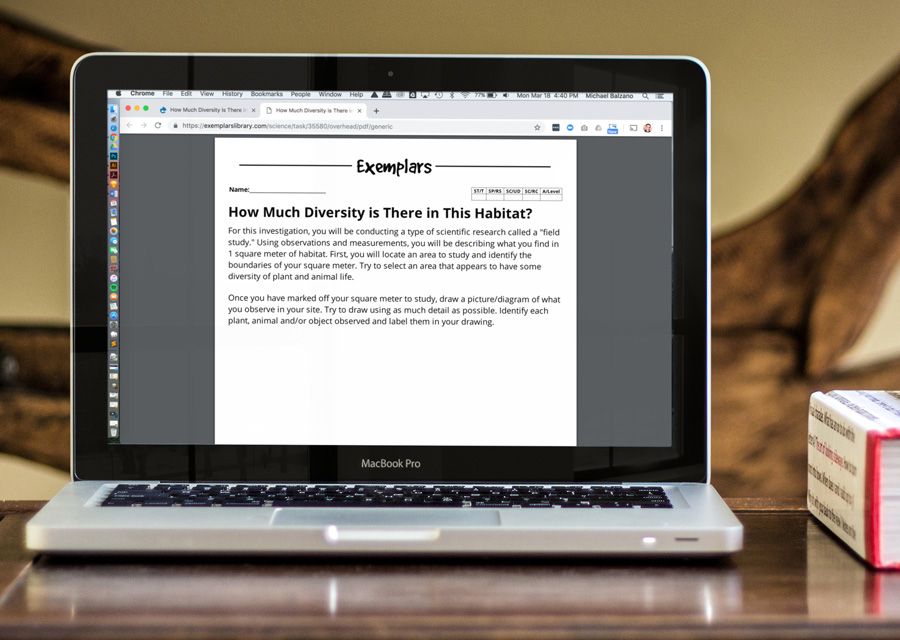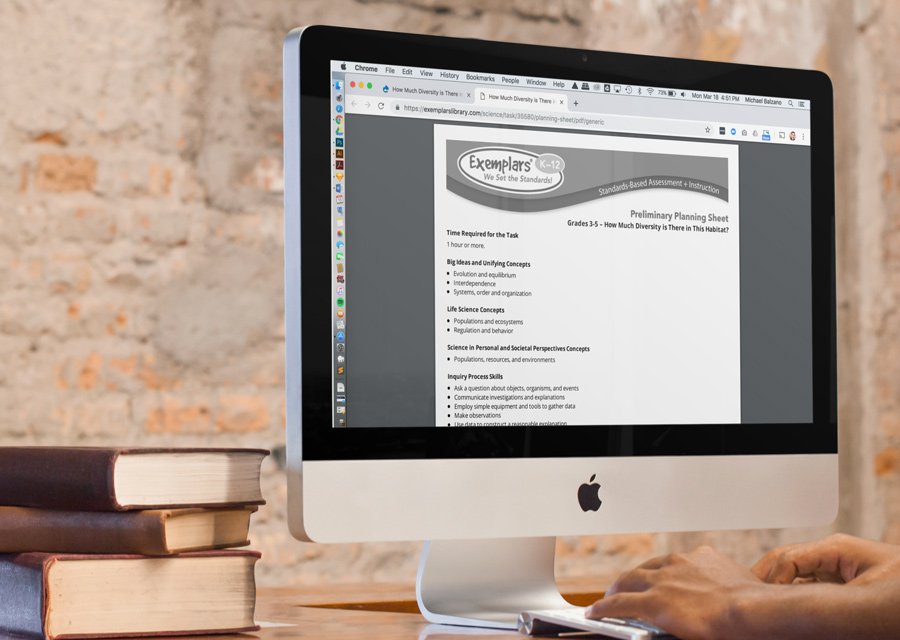
Delivered online, this K–8 resource provides educators with a powerful suite of performance material to help students develop conceptual understanding in science while utilizing the skills of inquiry, engineering, and communication.
220 engaging hands-on investigations are organized by Content Standards, Big Ideas, Inquiry Process and Design Technology Skills, and Math Concepts. Supports state and national standards (NSES, NRC, AAAS, and STEM).
Exemplars is the perfect supplement to any science curriculum!
 Tasks
Tasks
Our inquiry-based performance tasks may be used for instruction, assessment, and professional development.
Published in K–2, 3–5, and 6–8 grade spans, hands-on investigations are uniquely designed to engage students and help them develop conceptual understanding in science while utilizing the skills of inquiry, engineering, and communication.
Content areas include Earth and Space Science, Physical Science, Life Science, and Science Perspectives. Interdisciplinary links are included with each investigation along with suggestions for children's literature at the elementary level.
Material is organized by Content Standards, Big Ideas, Inquiry Process and Design Technology Skills, and Math Concepts.
Reviewed and approved by NSTA Recommends.
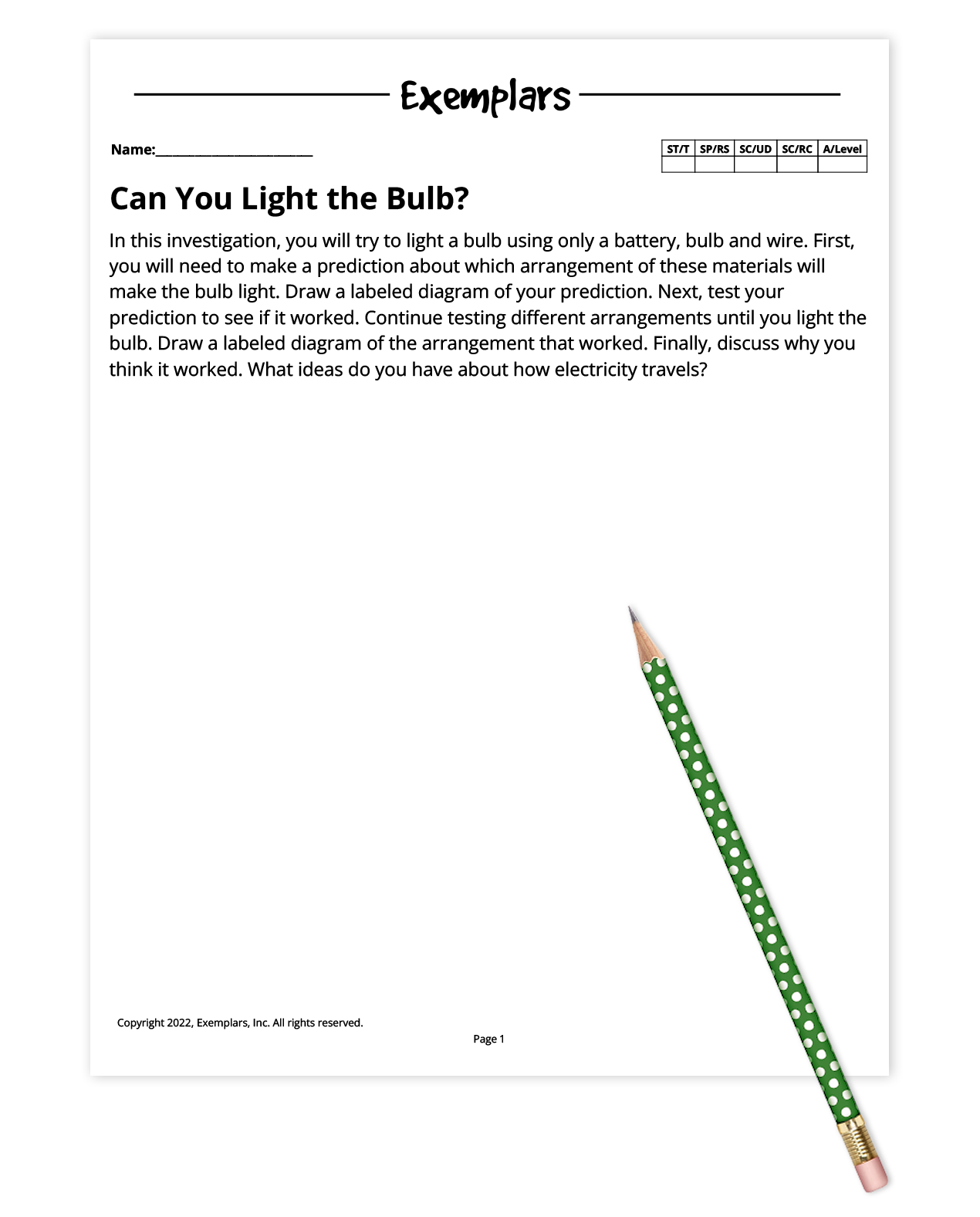
 Planning Sheets
Planning Sheets
Preliminary Planning Sheets serve as a teacher's guide for every task and outline the science concepts and skills students will need to know. Valuable teaching tips, guiding questions, and possible solutions are also provided. This resource assists with lesson preparation and assessing student work.
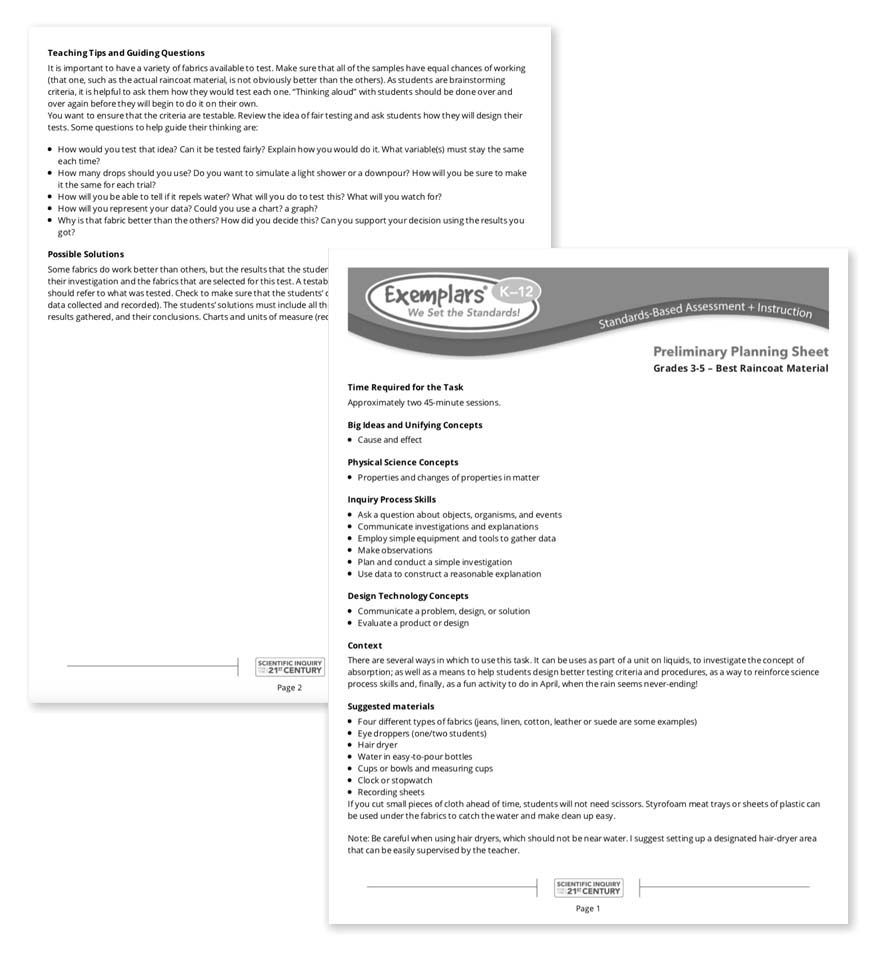
 Rubrics
Rubrics
The Exemplars Standards-Based Science Rubric allows teachers to examine student work against a set of analytic criteria to determine student performance. Our rubric criteria reflect national science standards (AAAS and NRC). There are 4 performance levels – Novice, Apprentice, Practitioner (meets the standard), and Expert.
This assessment tool is designed to identify what is important, define what meets the standard, and distinguish between different levels of performance. It also provides teachers with guidelines for giving meaningful feedback to their students.
Student rubrics, written in kid-friendly language, are also included. These may be used to develop a child's ability to self- and peer-assess.
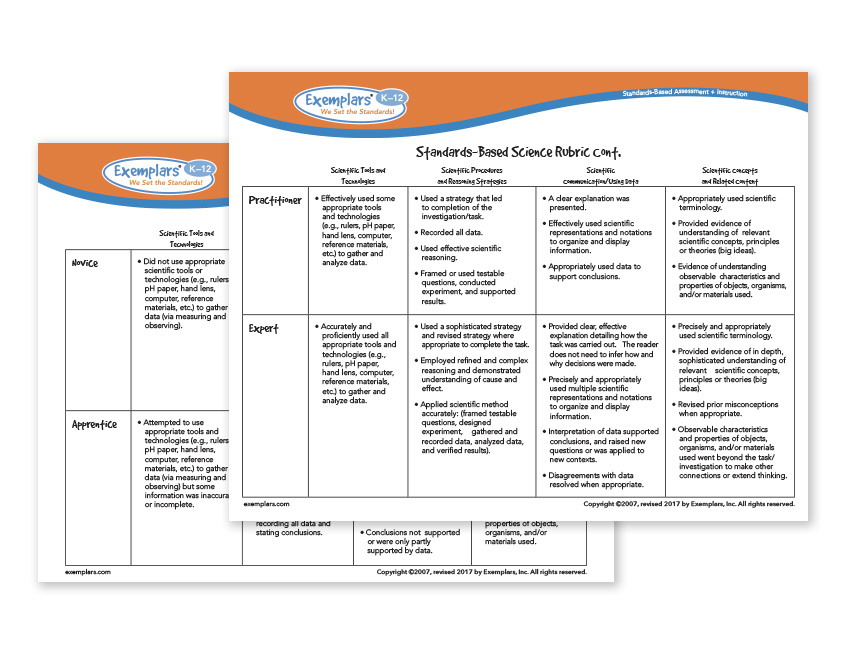
 Anchor Papers
Anchor Papers
Annotated student anchor papers and assessment notes are provided at the 4 performance levels of the Exemplars science rubric and accompany each investigation.
These tools demonstrate for teachers and students what work meets (and does not meet) the standard in accordance with the assessment rubric and explains why.
They are also a valuable staff development tool that may be used with students as a basis for self- and peer-assessment.
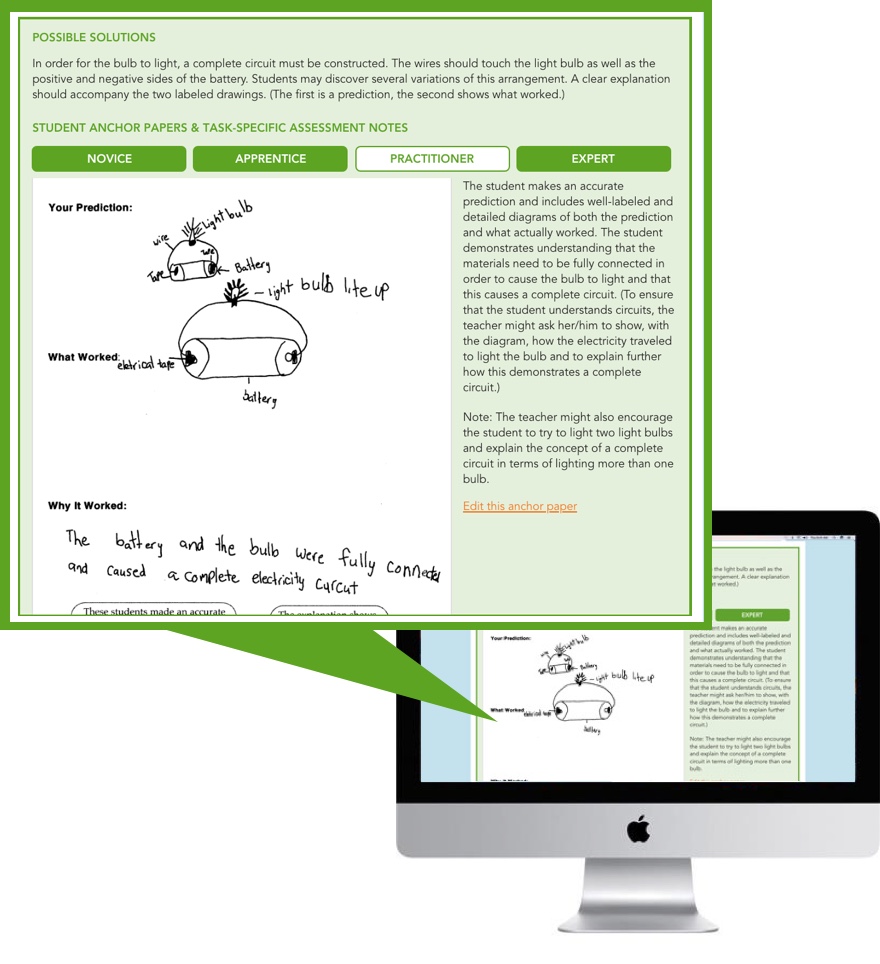
 Implementation Support
Implementation Support
To assist schools and districts new to performance-based assessment and instruction, Exemplars offers a complimentary Implementation Planning Webinar. During this session, your leadership team will gain a deeper understanding of Exemplars inquiry-based science materials and resources as well as tips for getting started successfully. We'll also put together a schedule of periodic check-ins that make the most sense for your needs and goals.
Exemplars also offers full-day on-site professional development workshops designed to generate immediate and sustained results.
Material includes:
- 220 open-ended performance tasks for assessment, instruction, portfolio pieces, and staff development for grades K–8
- Assessment rubrics that offer teachers clear guidelines for evaluating students' understanding and for providing meaningful feedback
- Student rubrics that encourage self and peer-assessment
- Annotated student anchor papers that demonstrate and explain what it looks like to meet (and not meet) the standard for each investigation
- Rich, teaching notes and Planning Sheets to guide instruction and assessment
- Interdisciplinary links to extend learning across the curriculum
- Alignments for state and national STEM standards
- Online delivery for teachers.
- Integrated with Google Classroom.
Access to the Exemplars Library requires a computer with one of the following Internet browsers: Internet Explorer 8+, Chrome, Safari, or Firefox.
Please contact us or call 800-450-4050 for more information about getting started with Exemplars.
The links below contain a variety of resources provided free to our many users and to those of you just learning about Exemplars. We hope you find these resources useful.
